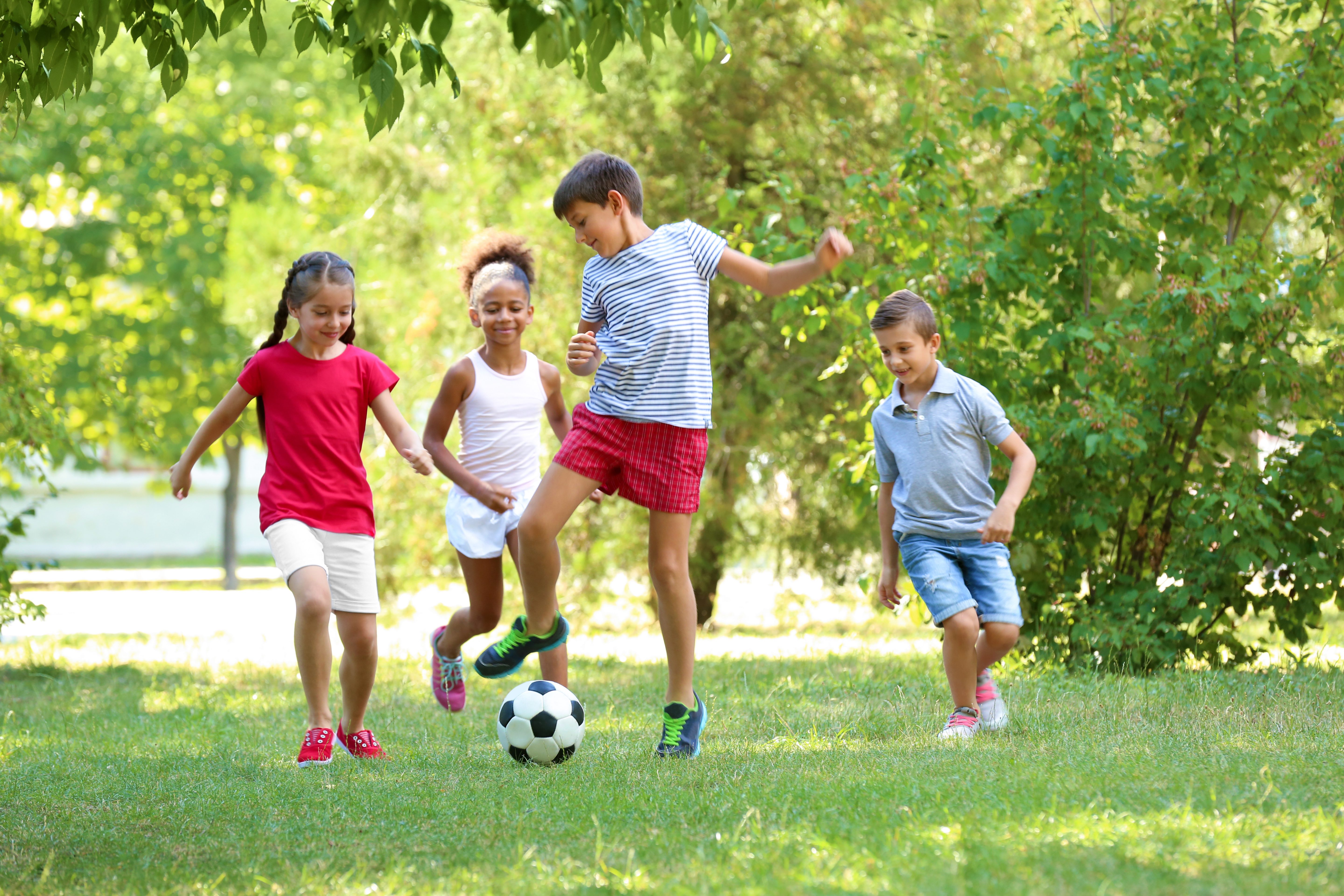Ready, Set, Shine! Helping Your Whole Family Thrive During the School Year
Hello and welcome to the start of another school year! Even for students who are experienced with school, this is an exciting time filled with new opportunities and learning. But it's also a period of transition—new classes, teachers, schedules, expectations—so there can be stress around navigating these changes. .
The start of a new school year is an exciting yet nerve-wracking experience. For some, it's the beginning of a brand new chapter in their lives - entering a different grade, school or even country. For others, it's about reconnecting with old friends and teachers, and getting back into the swing of things at their familiar school. Either way, it's a time for fresh starts and great opportunities to look forward to.
Schools often provide orientation programs for new students to help them settle in faster. They can offer support from counsellors or peer mentors as well as guidance on how to navigate the campus and find all the necessary resources they may need, such as libraries, computer labs and so forth. Orientations can also be an opportunity to meet fellow classmates and get more familiar with school activities like clubs, sports teams or extracurricular activities that might interest them.
For continuing students, the start of a new school year is also filled with possibilities. It's a chance to review past performance and set goals for improvement — whether academically, socially or athletically — while making new contacts along the way. Depending on their age group and academic level, they may also be preparing for college entrance exams or finding ways to make their resume stand out in order to get accepted into competitive schools or universities.
For most educators and administrators however, the start of a new school year means ensuring everything is running smoothly and efficiently - from transportation issues to classroom management strategies - so that classes can start without any major delays or problems before term ends up too quickly once again!
Overall, there are many ideas stemming from this topic worth exploring: what challenges come hand in hand with the transition period? How do we best prepare young children for their first days of school? How do we help older students make better decisions when transitioning from high school into college? Also important are questions around how we can foster harmony among different races/ethnicities in our schools today? And finally: what should teachers focus on during the first few weeks back in class? All these discussions are relevant when discussing what it means to kickstart another academic year successfully!

Physical Well-Being:
Tips for establishing healthy habits and routines, such as exercise, eating right, and getting enough sleep.
When it comes to physical well-being, establishing healthy habits and routines is essential for overall health and wellness. Habits such as exercise, eating right, and getting enough sleep can drastically improve your quality of life and provide numerous long-term health benefits.
Exercise is one of the most important habits in promoting physical well-being. Regular exercise helps reduce stress levels, strengthen muscles and bones, improve cardiovascular health, and boost energy levels. Finding an activity you enjoy can help make it easier to stick with a regular exercise routine. Whether it’s running, biking, weightlifting or yoga—whatever works best for your body—setting aside time each day to get some physical activity is key to maintaining good health.
Eating right is another important habit for physical wellbeing. Eating a balanced diet full of whole grains, fruits and vegetables will give your body the nutrients it needs to stay healthy. Avoiding processed foods that are high in sugar, salt and fat can also help maintain a healthy weight. Staying hydrated by drinking plenty of water throughout the day is also beneficial for overall health.
Getting enough sleep every night is necessary for physical wellbeing as well as mental clarity and alertness during the day. Powering down electronics at least an hour before bedtime can help create better sleep hygiene habits by allowing your mind more time to relax before hitting the pillow. Having a consistent bedtime routine such as taking a warm bath or reading a book may also be beneficial in helping you wind down before sleeping each night.
Establishing healthy habits and routines like exercising regularly, eating right, and getting enough sleep are important steps that everyone should take in order to promote their physical wellbeing. When done consistently over an extended period of time these practices become habits that will benefit your health both now and in the future.

Mental Well-Being:
Strategies to help your children manage stress, stay focused on tasks, and cultivate positive thinking habits.
Establishing healthy habits and routines for mental well-being is essential in helping our children manage stress, stay focused on tasks, and cultivate positive thinking habits. These habits and routines will set them up for success both now and in the future.
One way to help your child create a routine that promotes good mental health is to focus on getting enough sleep. Sleep is incredibly important for physical and mental health, so make sure your child has enough time to rest each night. This means establishing a bedtime routine that includes winding down time before bed, limiting caffeine intake late in the day, avoiding screens at least an hour before bedtime, and creating a calming atmosphere in their room.
Another important habit to focus on is healthy eating. Eating nutritious meals throughout the day improves energy levels, moods, concentration, and more. By introducing more fruits, vegetables, lean proteins, whole grains, nuts and seeds into your child's diet you can help them feel better mentally.
Finally, it’s important to encourage activities that contribute to your child’s overall wellbeing such as exercise or yoga. Exercise helps release endorphins which makes us feel good and increases our ability to regulate emotions better. Yoga also helps reduce anxiety by focusing on breathing techniques which encourages relaxation in the mind and body.
By incorporating these strategies into everyday life you can help your children manage stress better while cultivating positive thinking habits that will benefit them long-term. Establishing these habits early on will give them the foundation they need to succeed now and later in life.

Emotional Well-Being:
Ideas to support your children in developing resilience by embracing their emotions, finding joy in life’s experiences, and cultivating meaningful relationships with others.
When it comes to emotional well-being, establishing healthy habits and routines is key. Habits and routines give children a sense of comfort and stability as they learn to navigate life's experiences. Establishing these habits can be beneficial for both children and adults alike, as it helps to promote resilience in the face of adversity.
One way to begin developing habits and routines that support emotional well-being is to help your child embrace their emotions. Encouraging them to recognize their feelings and respond in healthy ways when feeling overwhelmed, angry, or anxious can be incredibly valuable for their mental health. Additionally, teaching your child how to cope with challenging emotions can help them build resilience by learning how to effectively manage their emotions when they arise.
Another way to cultivate emotional well-being is by helping your child find joy in life’s experiences. Whether through activities such as art or music, reading new books, playing sports, or simply spending time with family or friends, these experiences can help your child find moments of happiness throughout the day. Over time, these positive experiences can lead to increased self-esteem and optimism, which can play an important role in improving overall mental health.
Finally, helping your child cultivate meaningful relationships with others is essential for their emotional well-being and social development. Teaching them how to form strong connections with those around them will help foster a sense of belonging and connection which are integral for forming a healthy support network that can provide guidance during difficult times. Encouraging open communication between parent/caregiver and child is also beneficial; this allows your child to express themselves openly without fear of judgment or repercussions from you.
By taking steps such as embracing their emotions, finding joy in life’s experiences, and cultivating meaningful relationships with others, parents can set the foundation for good emotional well-being in their children that will serve them well into adulthood.
The implementation of strategies to support lasting wellbeing can be incredibly beneficial for students throughout the academic year. By developing a plan that focuses on physical, emotional, and mental wellbeing, students can have better control over their own health and happiness. Physical wellbeing involves healthy eating, regular exercise, and adequate sleep; all of which can help promote longevity and optimal performance in academics. Emotional wellbeing centres around building meaningful relationships with peers, faculty, and family; fostering good communication; and learning how to deal with difficult situations. Mental wellbeing is about understanding our capabilities, setting realistic goals for ourselves, developing patience and resilience when faced with challenges or setbacks, using problem-solving skills when needed, managing stress levels through relaxation techniques such as yoga or meditation. Through the implementation of these strategies during the academic year ahead students can gain improved physical fitness, better interpersonal relationships with peers and faculty members, increased self-awareness and motivation leading to higher academic performance. By engaging in meaningful activities that foster these aspects of student health throughout the year universities can ensure students will benefit from lasting mental, emotional, and physical well-being that can be carried through into adulthood.
Starting off the school year by establishing good habits and routines is essential to a successful upcoming academic year. A combination of physical, mental, and emotional well-being benefits will help your child have an amazing and rewarding school experience. No matter what this new school year brings – or any other one for that matter – implementing these strategies will ensure that your children strive towards healthier wellbeing outcomes each day. We hope our information has been helpful in kickstarting your efforts towards supporting the physical, mental, and emotional well-being of your children!

For more tips and information, check out our Facebook and Instagram pages using the links below, from January 30th for 4 weeks of
wellbeing.

